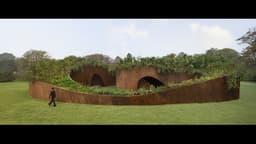Home / Environment / Moodbidri School Leads the Way in Zero-Waste Campus Transformation
Moodbidri School Leads the Way in Zero-Waste Campus Transformation
4 Nov, 2025
Summary
- Morarji Desai Residential School for Girls implements zero-waste model
- School produces over 2,000 kg of organic compost annually
- Students avoid single-use plastics and upcycle waste into learning materials

In November 2025, the Morarji Desai Residential School for Girls in Moodbidri, Karnataka stands as a shining example of sustainable waste management. The school, which was established in 1997 and moved to its current seven-acre campus in 2004, has become the first government-run residential school in the state to implement a zero-waste campus model.
The journey began in July 2022 when the new principal, Sanganabasayya Hiremath, noticed improper waste disposal and excessive plastic use on the campus. With the cooperation of staff and students, the school launched a weekly Swachhata drive, gradually transforming the campus into a cleaner, more environmentally-friendly space.
Inspired by zero-waste practices observed during major public events in Moodbidri, the school passed a resolution in January 2023 to adopt the zero-waste campus model. With guidance from the local municipal council and support from the Krishna Garg Vedan Trust, the school constructed waste storage units, composting pits, and installed over 50 display boards to educate the community.



